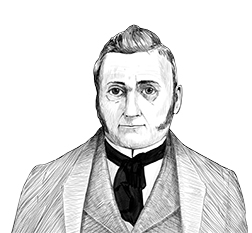Barthélemy Joliette facts for kids
Barthélemy Joliette (born September 9, 1789 – died June 21, 1850) was an important person in the history of Lower Canada and Canada East. He was a notary (a legal professional who handles documents), a successful businessman, and a seigneur (a landowner with special rights). He also played a big role in politics. Barthélemy Joliette was a descendant of the famous explorer, Louis Jolliet.
Contents
Barthélemy Joliette's Early Life
Barthélemy Jolliet was born in 1789 in a place called Saint-Thomas, near Montmagny. He was part of the family of the famous explorer, Louis Jolliet. After his father passed away, his mother got married again. He then grew up in the town of L'Assomption.
When he was older, he trained to become a notary. He learned from his uncle, Joseph-Édouard Faribault. By 1810, he was ready to practice law and started his own notary business in L'Assomption.
Career and Public Service
Serving in the Militia and Marriage
During the War of 1812, Barthélemy Joliette served as a captain in the local militia. This was a group of citizens who helped defend their area. In 1813, he married Charlotte Lanaudière. Her father was Charles-Gaspard Tarieu de Lanaudière. As part of their marriage, Joliette received a portion of the Lavaltrie seigneury. This was a large piece of land with special rights.
Entering Politics and Business Growth
In March 1820, Joliette was elected to the Legislative Assembly of Lower Canada. This was a group of elected officials who helped make laws for the region. He represented the area of Leinster. However, the government was soon dissolved, and he did not run in the next election.
After his mother-in-law died in 1822, Joliette took on more responsibility. He began managing much of the family's seigneuries. He built a sawmill to cut down pine trees and turn them into lumber. This lumber was then sent to Great Britain.
Founding a New Town: Joliette
Barthélemy Joliette also started a new village. He named it Industrie. This village later grew into the city we know today as Joliette. He became a justice of the peace in 1826, which meant he could help keep order and settle disputes. The next year, he was promoted to lieutenant-colonel in the militia.
In 1830, he was elected again to the legislative assembly. This time, he represented the new area of L'Assomption. He served until 1832. Then, he was appointed to the Legislative Council. This was another important group that helped govern the province.
Expanding His Ventures and Community Building
Joliette continued to expand his lumber business. He also built a distillery in Industrie. To help transport goods, he built a railroad connecting Industrie to Lanoraie. He also focused on building up the community. He helped build a church and the Collège de Joliette. This college was run by the Clerics of St Viator.
During the Lower Canada Rebellion, Joliette remained loyal to the government. He served on the Special Council. This council helped manage the province after the rebellion. He seemed to be against the idea of joining Upper and Lower Canada. In 1841, he was named to the Legislative Council of the Province of Canada. He tried to get support to challenge the legality of this union.
Death and Lasting Legacy
Barthélemy Joliette passed away in Industrie in 1850. His contributions left a lasting mark. The town of Joliette is named after him. Also, a street in Montreal called rue Joliette and the Joliette metro station are named in his honor.
 | Janet Taylor Pickett |
 | Synthia Saint James |
 | Howardena Pindell |
 | Faith Ringgold |


